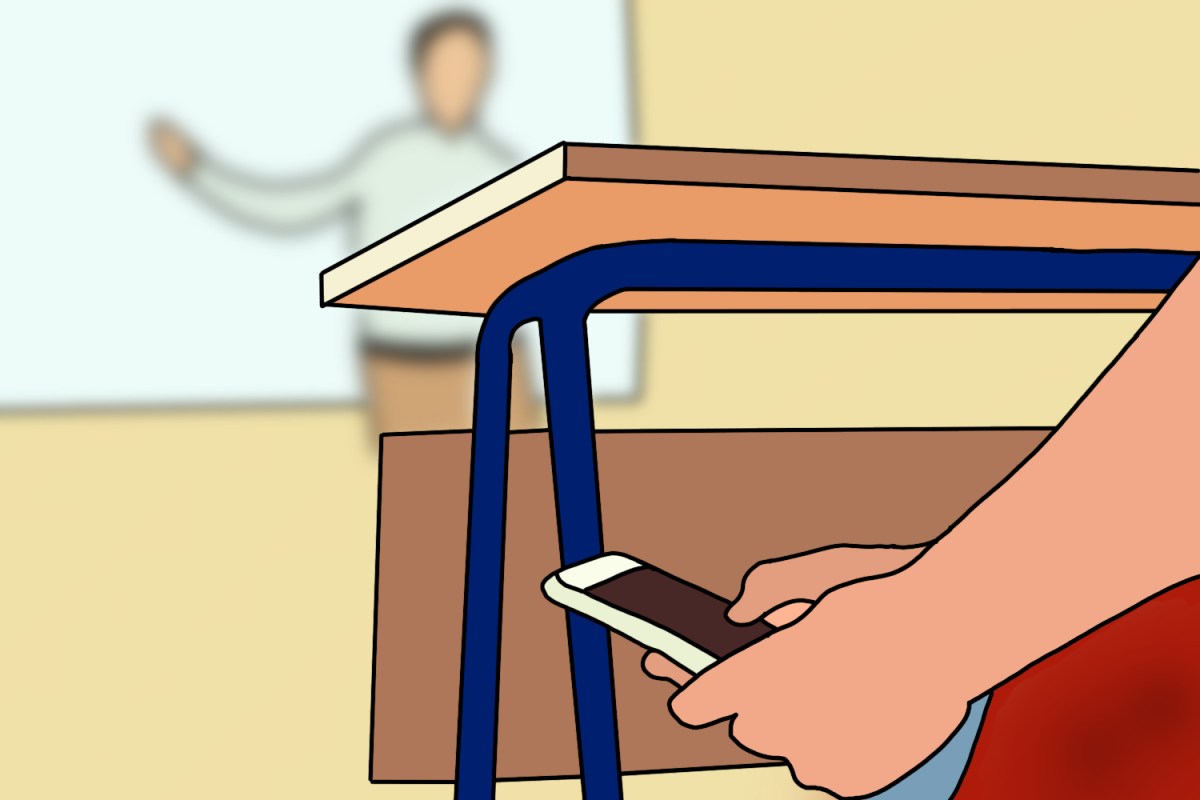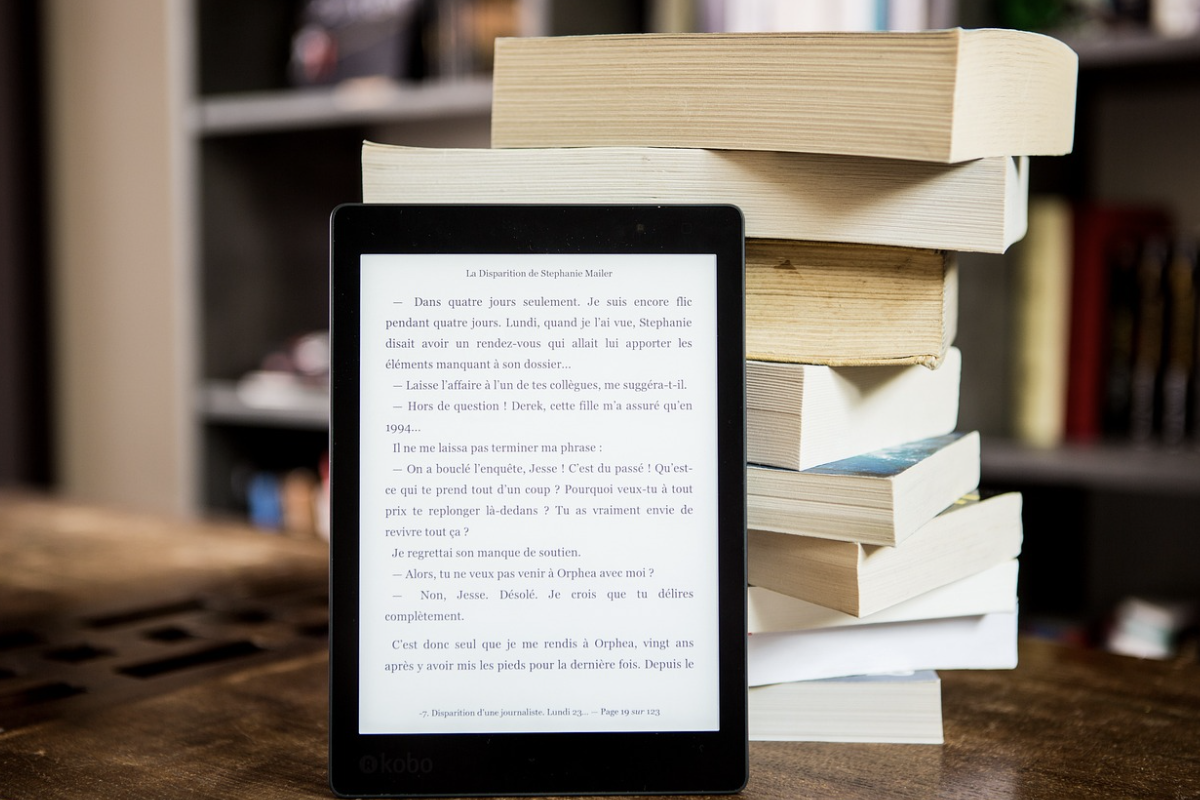For English Teacher Christopher Moore, reading an e-book is more difficult than reading a print copy.
“Any reading I do on a screen is more of a struggle to hold my concentration than any reading I’m doing in a book,” Moore said. “I don’t know if it’s because the type of reading I’m conditioned to do on my phone translates to how I read on an e-reader.”
Similarly, Aishwarya Preising (’27) said absorbing information and facts from an e-book is difficult.
“It’s easier to retain information on a paperback book because it is much easier to stay focused and my mind does not get bothered by other things,” Preising said.
Moore said to be fully engrossed “in other worlds and other human stories”, he prefers reading a physical book.
“If I really want to sink in and immerse myself in a book, it’s kind of that traditional page-turning that needs to happen,” Moore said.
Keely Gladis (’27) said print books hold a particular physical value that e-books lack.
“Reading an e-book is not as nice as reading a proper paperback book,” Gladis said. “It’s missing that nice charm that paperback has.”
Likewise, Moore said the palpability of print books can provide the readers with a personal connection to the story.
“There is something about the tangible experience of turning a page and kind of feeling a story progress,” Moore said. “There’s the emotional reward of seeing yourself progressing through a book from the beginning, to being halfway through to being almost done.”
Preising said annotation differs between the two different reading mediums.
“In paperback books, you can annotate really easily and highlight things and you have space to write, which is really nice if you are reading a book that you really enjoy,” Preising said.
Nevertheless, Gladis said e-books are easier to work with and annotate.
“It is much easier to pull back up information on e-books and they have much easier access to the information that you may need at any given time,” Gladis said.
Preising said e-books have catalogs of millions of books, which is a benefit of digital reading.
“You only have to carry your phone, Kindle or laptop, which many would be carrying either way because of school or pleasure, and you can have a lot of books,” Preising said. “I recently got a Kindle and I love it because I only carry that now. I have 400 books on there and read whichever ones I want to.”
Moreover, Preising said e-books are more comfortable due to their light weight.
“There are not many benefits to paperbacks,” Preising said. ”If a reader were to want to carry multiple books it would be super heavy.”
Ultimately, Moore said people are often stuck with the belief that they must constantly be at the forefront of technology and print books may be the better option
“When Kindle was hot when it first came out, probably ten to fifteen years ago, I, like many other people, got one wanting to be on the cutting edge of technology,” Moore said. “‘Oh look it will make packing on trips easier,’ ‘It will take up less space,’ ‘It will take up less paper’ and yet gradually, after many years, I found myself gradually moving back to paperbacks.”





